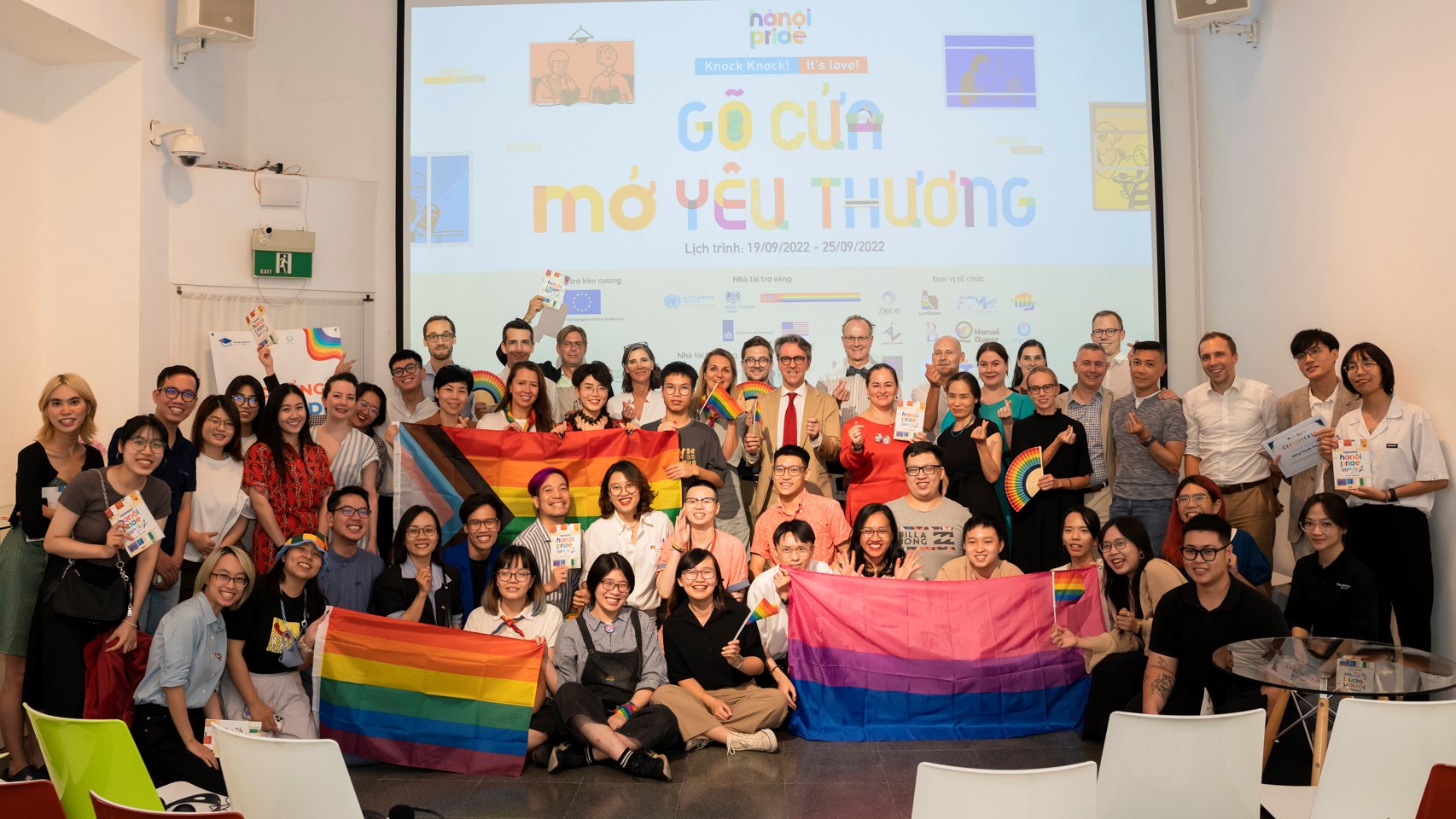By Atty-Roos IJsendijk, UNDP Human Rights & Inclusive Governance Specialist
Eight Years and Counting: Why the Gender Affirmation Law Matters in Viet Nam
May 16, 2023

Hung’s heart races with excitement, his palms grew sweaty as he slid the engagement ring onto Nga’s finger. His fingers trembled nervously, as if he feared she might change her mind if he was not quick enough. But he knew she wouldn’t. They had been together since high school and now in their early twenties, they shared a deep bond that went beyond words. They both had a passion for manga art, a love of Korean food and a fondness for silly dancing like nobody’s watching. They were housemates and had adopted a stray cat.
In that sense, their engagement and eventual marriage would not alter their daily lives significantly. Or would it? As spouses they would be able to enjoy certain legal benefits that would strengthen their bond. For instance, they could open a bank account together and enjoy tax benefits for married couples. In case of any emergencies, they would have the legal right to support and make decision for each, such as in a medical emergency. And if they ever decided to have children, they would have joint custody.
A marriage would mean a real recognition of their lived reality.
For that reason, today was a day long anticipated by Hung and Nga: the Civil Code amendment had finally made it through the National Assembly. The amendment included a provision that would allow Hung to change his legal gender marker to the gender he has identified with for as long as he could remembered, even though his sex assigned at birth was female.
It was a historical moment when the Civil Code amendment passed in 2015, including Article 37 which stated clearly that individual would be allowed to change their gender on identity documents by law. This was a crucial step forward for Hung and others, who had been waiting for recognition and acceptance of their gender identity. But eight years later, Hung and Nga are still waiting for the legal process to be put into place so he is able to alter his gender maker and get married.
The two of them wait for that change, along with an estimated 290,000-480,000 people in Viet Nam who identify as transgender.[1]In fact, almost 87% of transgender men and 75% of transgender women report having had to change their physical appearance in ways that do not align with their identity for practical purposes in their everyday lives such as housing, work, schooling, and social services.
The practical obstacles that arise from this misalignment can be significant, causing undue stress and difficulty for individual like Hung. However, the stigma and discrimination that transgender people face are even more damaging than the practical obstacles. The rates of depression and suicide among the transgender community are much higher than the national average. Nearly 40% of transgender people in Viet Nam report having suicidal thoughts, and nearly half of them have attempted suicide.[2]
The development of the law on legal gender affirmation is a significant step forward in recognizing the human rights of transgender people. This legal change reflects a growing awareness and acceptance of the unique challenges faced by this community. The Ministry of Health has taken an important step to align their policy with the latest edition of the International Classification of Diseases, which acknowledges that being transgender alone does not constitute an illness or disorder. The Ministry has also circulated internal guidance for healthcare practitioners, emphasizing the importance of equal access to medical care for transgender individuals and prohibiting discrimination on the basis of sexual orientation or gender identity.
Many countries around the world are taking steps to reform legislation to ensure that transgender people have the ability to apply for legal gender marker change. In the Asia-Pacific region, only a couple of jurisdictions currently facilitate this legal gender marker change process. When Viet Nam moves forward with this legislation, it would be among the leaders in the region.
In doing so, it will be important for Viet Nam to prioritize the personal decisions of individuals based on their self-determination and in line with the human rights agenda. It is crucial to recognize that individuals have the right to apply for a change in their gender marker without being forced to undergo invasive medical interventions.
While some may choose to undertake hormonal treatments and surgical interventions (which should be accessible and safe), such medical procedures should not be a prerequisite to applying for legal gender marker change.
It was encouraging to see that the proposal put forth by National Assembly member professor Nguyen Anh Tri to advance the legislative development regarding legal gender marker change has been accepted by the Standing Committee (in May 2023). If the National Assembly agrees, the draft Law will be discussed during its session in October next year and voted on in the May 2025 session.
This concrete timeline is indeed a reason for celebration on this International Day Against Homophobia, Biphobia and Transphobia. Hung, Nga, and the transgender community in Viet Nam have played an essential role in advocating for their rights and shaping this legal development. Laws and policies can only be effective when they are developed in collaboration with and reflect the needs and aspiration of the individuals and communities they aim to support.
Nothing about us without us is not just an inspiring phrase – it’s a powerful reminder to put people at the center of development efforts. Hung, Nga, and others in the transgender community are at the heart of these efforts, advocating for their rights and shaping the path towards legal recognition. UNDP remains engaged and committed to supporting the community, Government and the National Assembly in the development and implementation of Viet Nam’s first transgender law.

 Locations
Locations



